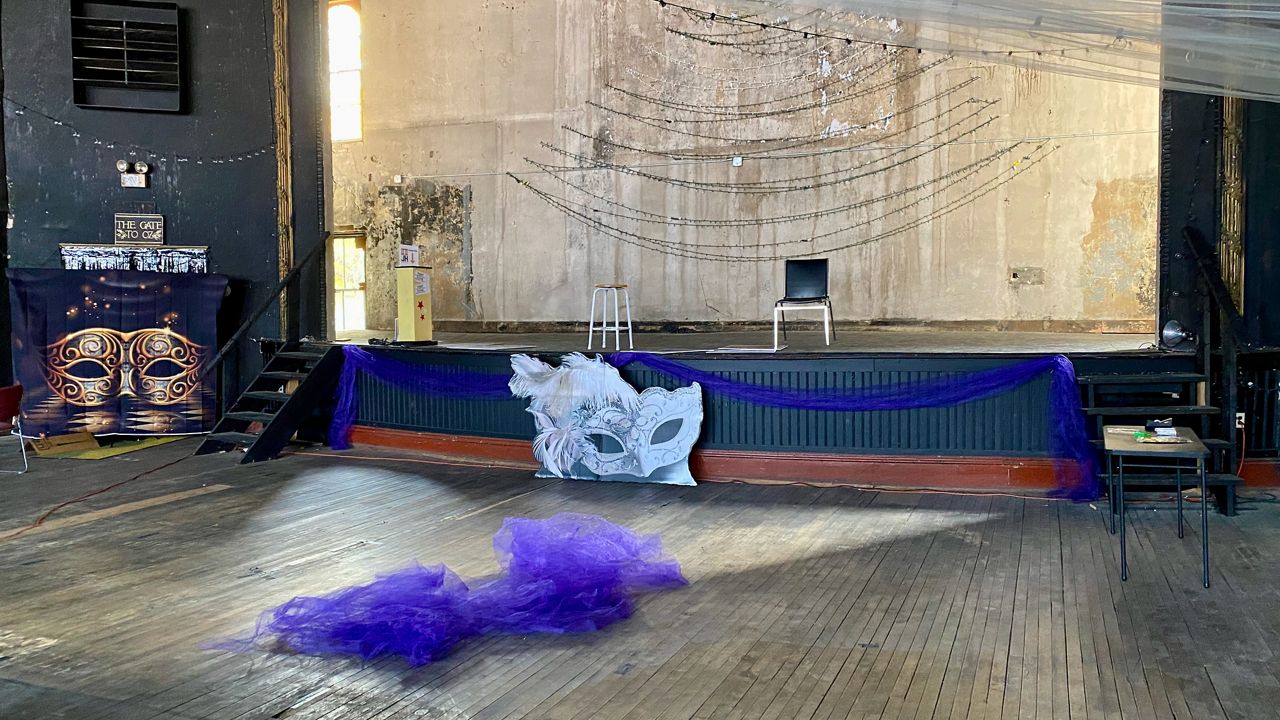A five-year fundraising campaign is nearly complete for Johnson Hall, the downtown Gardiner theater that supporters hope to see grow into a major economic driver for the city.
Although still about $624,000 short of their $5.5 million renovation budget, work is slated to start in April on the 15-18 month project, said Carrie Arsenault, capital campaign director.
“We’ll bring a lot more people into Gardiner,” Arsenault said. “We’re going from 125 seats to 400 seats.”

Projections show Johnson Hall is already generating $100,000 a year for area businesses – a number that’s expected to grow to $450,000 once they are back in their renovated home in 2023.
Work includes adding an elevator, renovating the lobby and office space on the first floor; adding another lobby, restrooms and a green room for performers on the second floor; and then the major project of transforming the massive third-floor theater that’s been closed since the 1950s.
It will become a 400-seat theater with a balcony that supporters hope will draw acts such as Lyle Lovett, the Indigo Girls, Steve Earle and Vince Gill, in addition to comedy acts, theatrical productions and “select films not available elsewhere in the area,” according to a fundraising brochure.
Johnson Hall already has a 117-seat studio theater on the first floor that will continue to be used for arts education programs and other events.
Board member Katie Doherty, president and CEO of the Kennebec Valley Chamber, said once the work is complete, it will help local inns, restaurants and shops. And when people from outside the area see Gardiner, they might want to stay, she said.
“We’ve got to have things for our businesses and employees to do,” she said.
Also, Johnson Hall has been growing its audience size even before the renovations. Shows in 2012 reached about 450 people, a number that had grown to 4,000 in 2019, the last full year before the pandemic, she said.
Work on the 1864 building, considered to be Maine’s oldest operating opera house, dates back to the 1980s when local citizens purchased it with the goal of bringing it back to life. Slowly, the group raised enough money for some programming with the eventual goal being a much-needed major renovation to the third-floor opera house.
Then in 2013, the board hired Michael Miclon as executive/artistic director to bring in more programming, larger audiences and community outreach.
In three weeks, bids are due back from construction companies interested in the work, so they’ll have a good idea of how much additional money they need to raise, Arsenault said.
“What we’re looking at now is how much more will it cost because construction costs have gone up,” she said.

So far they’ve tapped multiple funding sources, including foundations, businesses, the city, the federal government and individual donors.
When construction begins next spring, they will need to clear out of the building. The plan is to launch “Johnson Hall on the Road,” in which they will work with other venues to produce shows. They will continue to offer their annual summer concert series on Friday nights on the waterfront and plan to do outdoor ticketed concerts, she said.
“We want to still remain top-of-mind for people so that they don’t forget about us and then we reopen and they are like ‘oh yeah Johnson Hall,’ ” Arsenault said.
Just recently, the theater began offering post-pandemic shows with limited seating. Proof of vaccination or a negative test result in the previous 48 hours is required. One of those events is a masquerade ball on Saturday reminiscent of those held there in the 1800s, said Maureen Reed, development coordinator for the theater.
Just up the river, work is ongoing on the 1913 Colonial Theater in Augusta, another downtown space that has fallen into disrepair. Once work is complete, the Gardiner and Augusta venues will join the Theater at Monmouth, home to summer Shakespeare and other productions, as key arts centers in central Maine.
“The more diversity we can have, the better,” Doherty said.



